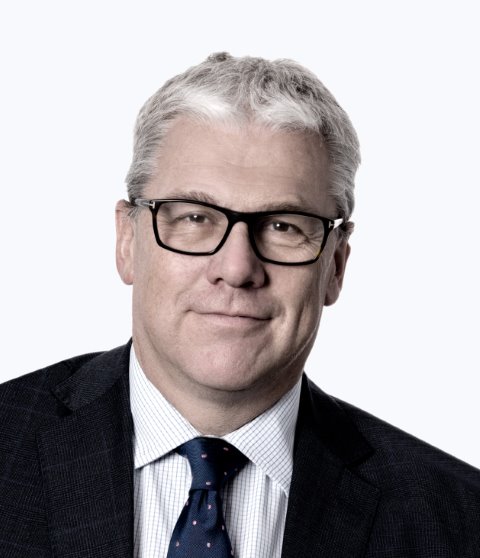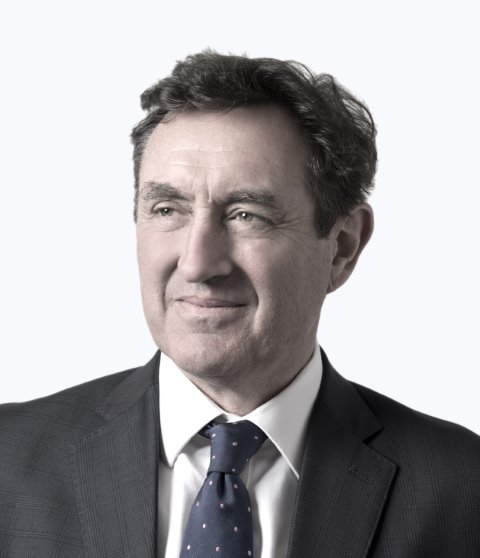Sitting in a room called ‘Rembrandt’ waiting to see the heads of a firm called Vermeer Investment Management, one might be inclined to think that this is either an ultra-niche Dutch equities specialist or a nod to art historians (Rembrandt enjoying fame during his lifetime, Vermeer not properly recognized until 200 years after his death).
Alas, no. Vermeer is a boutique firm which has a global equities fund, with £55 million in AUM. It is categorised as a growth fund by Morningstar although Tim Gregory (pictured), co-founder and chief investment officer, says he and his colleagues are ‘style agnostic’.
However, Mr Gregory qualifies this point: “In the last five years since we launched the fund the bias within the portfolio has been to growth.”

Tim Gregory
With names such as Amazon, Microsoft and Nvidia in the portfolio, the growth names are well represented although a look at the top holdings and what’s been driving the impressive performance is intriguing.
The fund’s top holding is oil major BP, which was massively out of favour during lockdown due in part to a lack of demand as planes weren’t flying (which consume over 1 million barrels of oil per day normally).
The decision to buy BP was not a whim rather it was the result of a lengthy macro analysis of the state of the oil market which led the team to conclude that little investment had been made for some time. For this reason, the supply/demand dynamic that drives the oil market seemed a good idea. It was. BP is up over 30 percent in a year, bought while trading at ‘value’ type multiples.
While some fund managers may be reluctant to hold an oil producer due to ESG concerns, BP’s commitment to funding research into renewable alternatives should allay any fears over this particular company.
Aside from commitments to an ESG friendly way of doing business, it is what BP is doing with its cash reserves that draws a firm like Vermeer in. Across the portfolio, the majority of the holdings are highly cash generative, with high amounts of free cash flow to boot.
BP returning cash to shareholders in the form of dividends, compounded by a series of share buy-backs is what the managers of this fund like to see. As Vermeer’s chief executive and co-founder James Rowsell (pictured) says: “We love cash flow but we like companies that have got pricing power.”
In the inflationary environment we find ourselves in, pricing power is paramount and this fund holds companies who enjoy high levels of control. The fund recently increased its position in German industrial power company Linde, which produces hydrogen. This company also has a stake in the UK’s ITM Power, so can promote this vital component to alternative power sources through this mechanism.
Portfolio construction
The portfolio as a whole contains a wide variety of names, some well-known, others less so with a hard ceiling of 60 holdings.
It is the ‘micro portfolios’ as they are dubbed by the firm that add another dimension to this fund. It has groups of Japanese and Indian equities, with the latter especially not being the usual ADR suspects found in other global equities products.

James Rowsell
This is due to Mr Roswell’s sell-side background and in particular his relationship with Indian brokerage Phillip Capital. Accessing Indian equities is notoriously hard to do, hence most use ADRs (which the firm conceded they did at one stage) but with Mr Rowsell’s intimate knowledge of the sub-continent, this firm can find gems that others may never have heard of.
It's not just the Indian equities the fund holds such as Shree Cement (which has almost doubled in share price terms over five years although retreated recently) it is the companies that the fund is keeping an eye on. For instance, Escorts, which manufacture specialised tractors. While many managers are keen to capitalise on the urbanization of India, in reality the country is still largely rural so a stake in a ‘must-have’ product for that demographic seems like a good idea.
Conspicuous by its absence are Chinese stocks, once the darling of emerging markets. Mr Rowsell makes a convincing argument as to why India is the preferred investment. The country has a far larger number of millennials compared to its aging peer China which means it has the potential for sustained growth.
Japan is another of the fund’s ‘micro portfolios’ which contains one of its top holdings Keyence, a developer of components used from everything from microscopes to measuring equipment although does not make the final product. Similarly to the aforementioned Shree Cement, the company has enjoyed decent growth although has waned in recent times.
Corporate governance is always a concern when dealing with Japanese companies but here Vermeer has developed an interesting way to navigate the issue. When an activist investor gets involved with a Japanese company that really should be doing better, the managers don’t jump in to enjoy the immediate uplift in share price the investment usually prompts. Rather they keep an eye on it and take a position when the activist seems to be making headway.
Sell discipline
When asked what his tolerance for bad news was, Mr Gregory says, “very poor”. This means that at the first profit warning the fund will sell out of its holding. This is perhaps the key difference between retail investors and the pros, for instance when AIM-listed online retailer Boohoo released a profits warning in December, it became the most popular stock for those looking for a bargain.
But there’s some real evidence that acting decisively can really save you some pain and money. When Treasury Wines issued a profit warning, the share price fell by 25 percent. Some managers would take the opportunity to top up their holding if they believed the fundamentals were sound. However, shortly after this alert came the news that China was no longer going to buy wines from this Australian listed entity so what might have been considered a short-term blip by some, was seen as a portent for further bad news by Vermeer and it was sold.

Charlie Fricker
Indifferently different
Some might glance at Vermeer’s global fund, see some of the US mega techs and summise that this is just a high beta fund. However, Charlie Fricker (pictured), assistant fund manager, details the difference compared to the MSCI World Index. The fund is underweight US equities, it has a 40 percent weighting compared to the index’s 70 percent.
“The businesses can be domiciled anywhere as long as they're exposed to the right areas, it doesn't really matter where they're based,” says Mr Fricker.
And this is another refreshing view from the firm. The majority of fund managers stress they’re strictly bottom-up stock pickers and don’t pay much attention to the macro framework. For Vermeer, it is about finding what trends are driving growth and investing in companies that will fuel that growth wherever they may be located.
While many similar funds hold Taiwanese Semi-Conductors for a route into the smart phone business, Vermeer holds ASML which is a major hub for this technology.
Many firms won’t display their entire portfolio for fear of giving away their secret sauce, Vermeer’s entire portfolio is available to view online. It’s this transparency, underlined by one manager being as candid to say that he sold a stock ‘at the worst possible time’ combined by the nimbleness of a small close-knit team that makes this a firm to watch.
Enjoying top IA quartile performance after its two-year milestone, Mr Gregory says ‘they were off to the races’. Then came Covid and asset raising became all that more difficult if not nigh on impossible. But for a fund that has returned 100 percent in five years, with a fee of just 44 basis points, Vermeer IM may well be recognised in its lifetime, unlike the Dutch master artist after which it’s named.
If you have enjoyed reading this article please click here and you can be sent them directly





